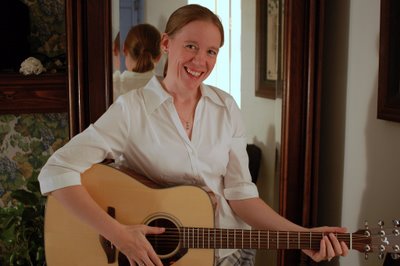Definition of Participation
She defines participation as:
- to take part in
- to share in
- to partner in.
What is a partner?
- A person who shares or takes part with another
- a companion in dancing (a dance partner)
- or a player on the same side in a game (a contest partner).
Craig Douglas Erickson has this to say about participation in his book Participating in Worship: History, Theory and Practice, though it’s not a definition per se:
“The personal motive for worship is crucial to the level of participation experienced therein. The starting point for authentic participation is the individual Christian’s own heartfelt and genuine response of praise and thanksgiving before the presence of God… Participatory worship is founded upon pietas or piety – that personal trust in and reverence for God that inclines the heart to true worship and devotion. Piety is that quality of openness to God that is itself a gift of the Spirit of god. Without piety participatory forms of worship are of little avail. This is not to deny the evangelistic potential of the liturgy,, which is considerable. Nor is it to suggest that liturgy is powerless to prompt and awaken the disposition that is proper to worship. Rather it is to emphasize the fact that major responsibility for participation in worship lies with the individual Christian. This responsibility involves much more than a momentary or nostalgic desire or the fulfillment of one’s Lord’s Day obligation. Authentic participation in worship arises out of the heart that is actively engaged in the Christian life with all of its moral and spiritual demands, including preparation for worship through prayer, Bible study, meditation, and fasting. (Erickson 3-4)
Sally Morganthaler, in her book Worship Evangelism: Inviting the Unbeliever into the Presence of God has this to say: (some of it is my paraphrase):
“[Worship is] the act and attitude of wholeheartedly giving ourselves to God, spirit, soul, and body. Worship is simply the expression of our love for God, which Jesus said, should involve all our heart, mind and physical strength” (Morganthaler, Worship Evangelism, 47, quoting Gerrit Gustafson)
“Thus Christian worship is not only offering all that we are to a Holy God (spirit). It is an intentional response of praise, thanksgiving, and adoration to The God, the One revealed in the Word, made known and accessible to us in Jesus Christ and witnessed in our hearts through the Holy Spirit (truth).” (Morganthaler, 47)
Morganthaler emphasizes that worship is not a one way street. It is a relationship, one that requires action. We can sit and listen to good music, a good speech, etc. and perhaps be inspired to worship, but worship and inspiration are not the same thing. “Corporate worship does not just inspire and hope that people will do more than activate their brain cells. It provides definitive opportunities for response.” (Morganthaler, 49).
- Intention on the part of the worshipper
- relationship instead of a one way street
- that the participation stems not from a desire to get something, but in response to something – God’s initiation in our lives.
Ok – your turn!

